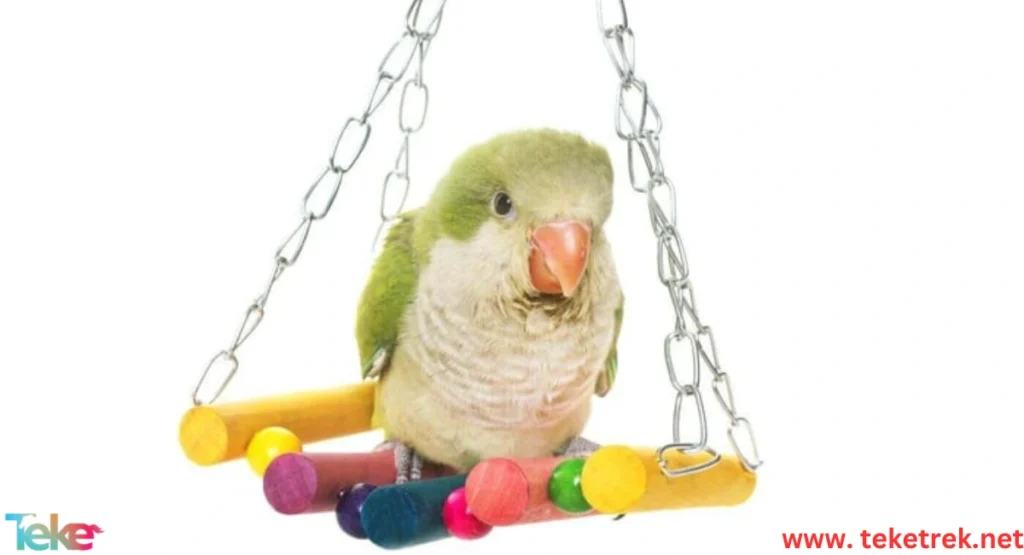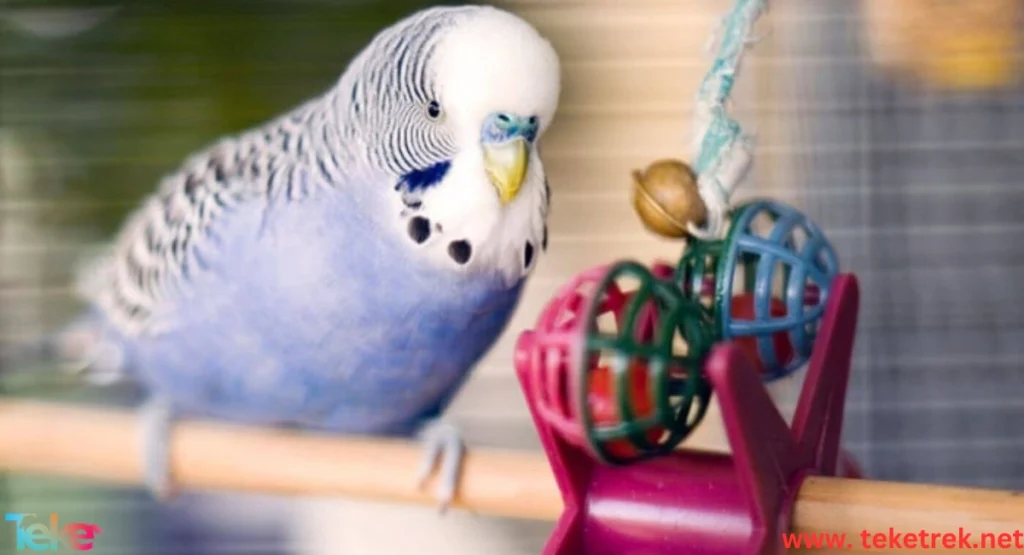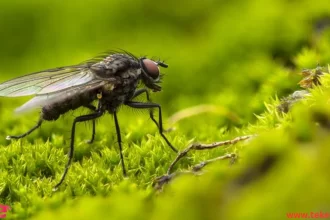In a world that is becoming increasingly aware of the importance of pets’ mental and emotional well-being, birds stand out as exceptional creatures with remarkable intelligence and complex social behaviors. Whether you have a parrot that masters sound imitation, a cockatiel that dances to music, or a canary that amazes you with its singing, providing a mentally stimulating environment for your pet bird is not just a luxury — it’s a necessity. Mental stimulation enhances birds’ happiness, reduces boredom-related behaviors such as feather plucking, and improves their quality of life.
In this article from teketrek, we will explore the importance of stimulating your pet bird’s intelligence and provide a comprehensive guide to suitable toys — whether homemade or store-bought — along with practical tips for choosing toys and training birds to solve puzzles. If you want to boost your bird’s happiness and unleash its cognitive abilities, this article is your ultimate guide.
Why Do Pet Birds Need Mental Stimulation?
Pet birds, such as parrots, cockatiels, and canaries, have active minds that require constant engagement. In their natural habitat, birds spend hours foraging, building nests, and interacting with others. In captivity, the absence of such activities can lead to boredom, stress, or even depression.
Benefits of Mental Stimulation for Birds:
- Reduce negative behaviors: Boredom can lead birds to behaviors like feather plucking or excessive screaming. Stimulating toys distract them and provide a positive outlet for their energy.
- Enhance mental health: Mental stimulation keeps birds active and happy, which in turn supports their physical health.
- Develop social skills: Interactive toys strengthen communication between the bird and its owner, deepening their bond.
- Extend lifespan: Birds living in stimulating environments often enjoy longer, healthier lives.
According to a study by the American Society for the Prevention of Cruelty to Animals (ASPCA), 70% of pet birds that suffer from negative behaviors such as feather plucking also experience a lack of mental stimulation — highlighting the importance of providing enrichment toys for their well-being.

Types of Suitable Toys for Pet Birds:
Birds’ needs vary depending on their species, size, and personality. For example, parrots require complex toys that mimic foraging challenges, while canaries may be content with simpler toys like swings.
Parrots (such as Macaws and Amazons):
- Require logic-based toys, like puzzles that involve opening lids to get food rewards.
- Chewable toys made of natural wood or safe ropes are both fun and beneficial.
Cockatiels:
- Prefer interactive toys like bells and mirrors for visual and auditory engagement.
- Hanging toys that move with air currents attract their attention.
Canaries and small birds:
- Swings and simple ladders provide adequate stimulation.
- Toys with seeds or grains inside transparent containers encourage interaction.
Simple Homemade Toys You Can Make:
You don’t need to spend a fortune to mentally stimulate your bird. You can create simple, effective toys using household items.
Treat Box Game:
- Materials: Small cardboard box (like an empty medicine box), colored paper, seeds or grains.
- Method: Place seeds inside the box, seal it with light tape, and make small holes so the bird can peck to get the reward.
- Benefit: Encourages problem-solving and interaction.
Rope Ladder:
- Materials: Safe cotton rope, small wooden pieces, large plastic beads.
- Method: Tie the rope into a ladder shape, adding wood pieces and beads.
- Benefit: Promotes climbing and physical activity.
Foraging Ball:
- Materials: Small plastic ball (like a ping-pong ball), scissors, seeds.
- Method: Cut small openings in the ball, fill it with seeds, and let the bird roll it to get the food.
- Benefit: Boosts logical thinking and motor skills.
Best Interactive Toys Available on the Market:
If you prefer ready-made options, the market offers a wide variety of toys designed to stimulate birds’ intelligence.
- Interactive puzzle toys:
Example: The Foraging Wheel, which has compartments that rotate to reveal food rewards.
Suitable for large parrots like Amazons and Macaws. - Sound and light toys:
Contain bells or soft lights that respond to the bird’s movement.
Perfect for cockatiels and small birds that enjoy sensory stimulation. - Command training toys:
Example: Push and Pull toys, where the bird must push or pull parts to get a reward.
Enhance logical skills and promote interaction with the owner.
How to Know if Your Bird Enjoys the Toy:
Understanding your bird’s body language and reactions is key to knowing if it enjoys the toy.
Signs of enjoyment:
- Active interaction: Approaching the toy, pecking, or exploring it.
- Happy sounds: Birds like cockatiels may chirp or hum when excited.
- Physical movement: Dancing, head bobbing, or wing flapping during play indicates happiness.
Signs of discomfort:
- Ignoring the toy.
- Showing defensive behavior like hissing or moving away — the toy may be scary or unsuitable.
Everything you want to know about carp: its types, food, and habitats
Signs of Intelligence in Pet Birds:
Pet birds, especially parrots, can show intelligence levels comparable to young children.
- Sound imitation: Parrots like Amazons can learn complex words and sentences. One famous example is “Alex,” an African Grey Parrot who learned over 100 words and could identify colors and shapes (Source: Dr. Irene Pepperberg, 1999).
- Problem-solving: Birds that learn to open lids or move parts to get food demonstrate logical intelligence.
- Social interaction: Birds that consciously interact with humans or other animals display advanced social awareness.

Can Birds Be Trained to Solve Puzzles?
Yes! Birds — especially parrots and cockatiels — can be trained to solve puzzles using simple positive reinforcement techniques.
Training steps:
- Start simple: Choose a toy with an easy-to-open lid and a food reward inside.
- Use positive reinforcement: Reward the bird (e.g., with a sunflower seed) when it interacts with the toy.
- Increase complexity gradually: Once the bird masters a simple puzzle, introduce more complex ones with multiple steps.
- Be patient: Birds need time to learn — avoid forcing or rushing them.
According to a 2014 University of Cambridge study, African Grey Parrots can solve complex puzzles requiring a sequence of five steps, demonstrating their high cognitive abilities.
Conclusion:
Stimulating your pet bird’s intelligence is not just a form of entertainment — it’s an investment in its mental and physical health. By providing a variety of toys, whether homemade or store-bought, you can boost your bird’s happiness and unlock its mental potential. Whether you own a clever parrot or a calm canary, choosing the right toys and training them gently will open the door to a whole new world of enjoyable interaction with your feathered companion.





